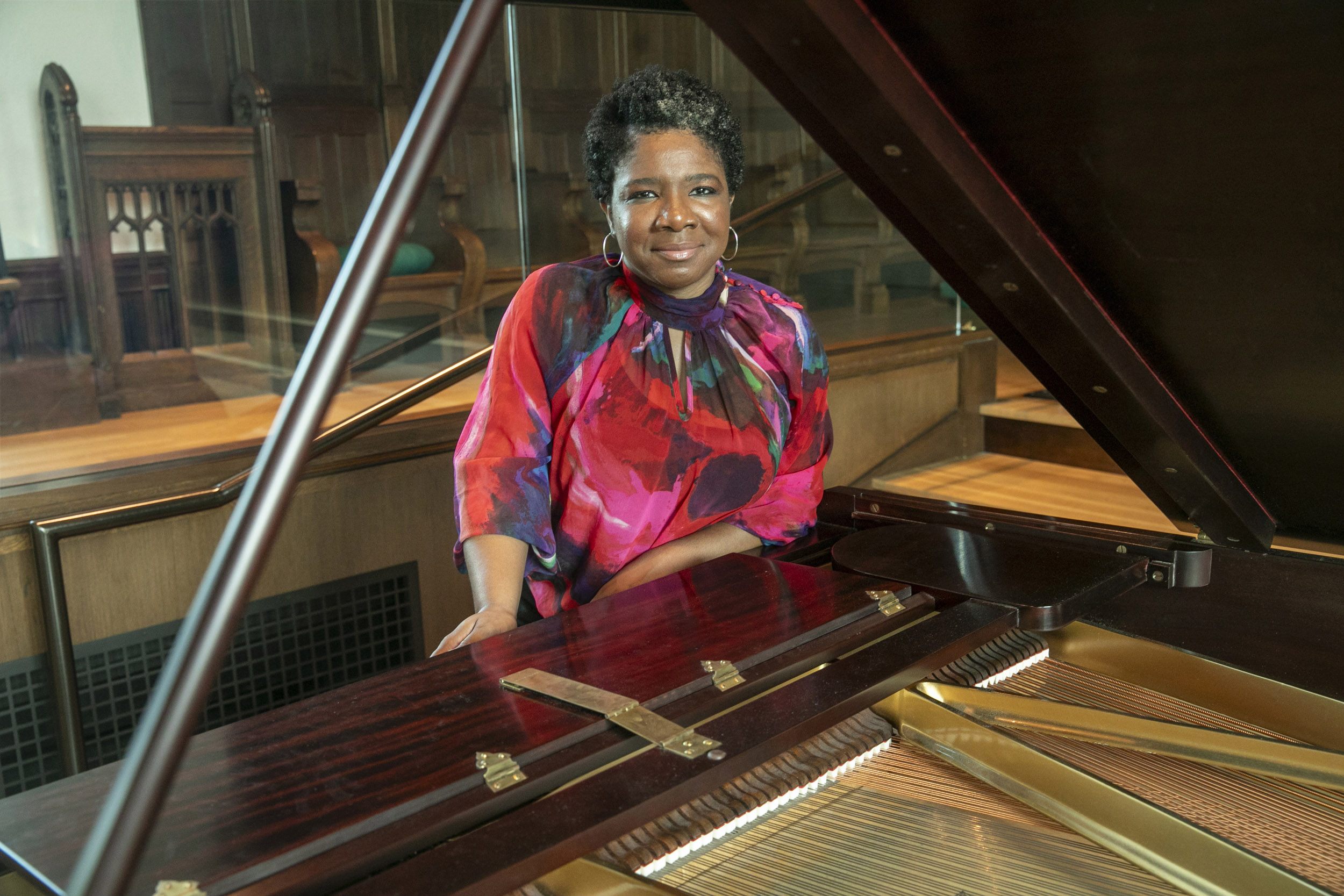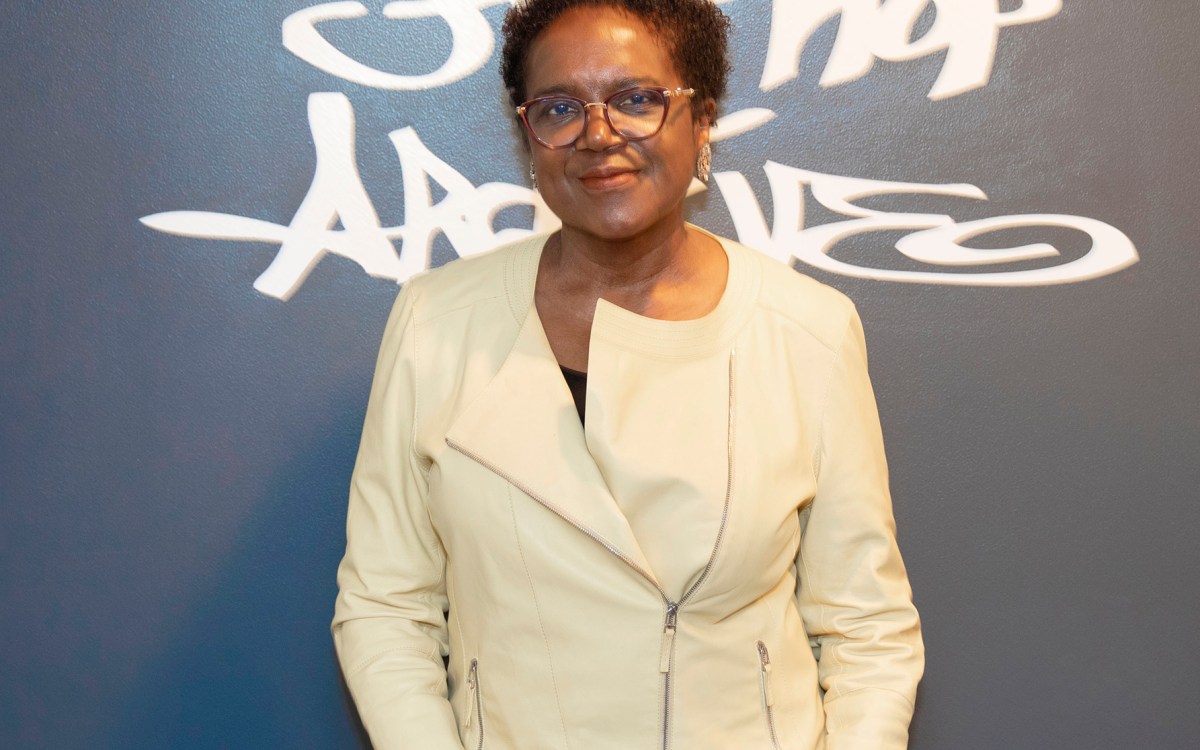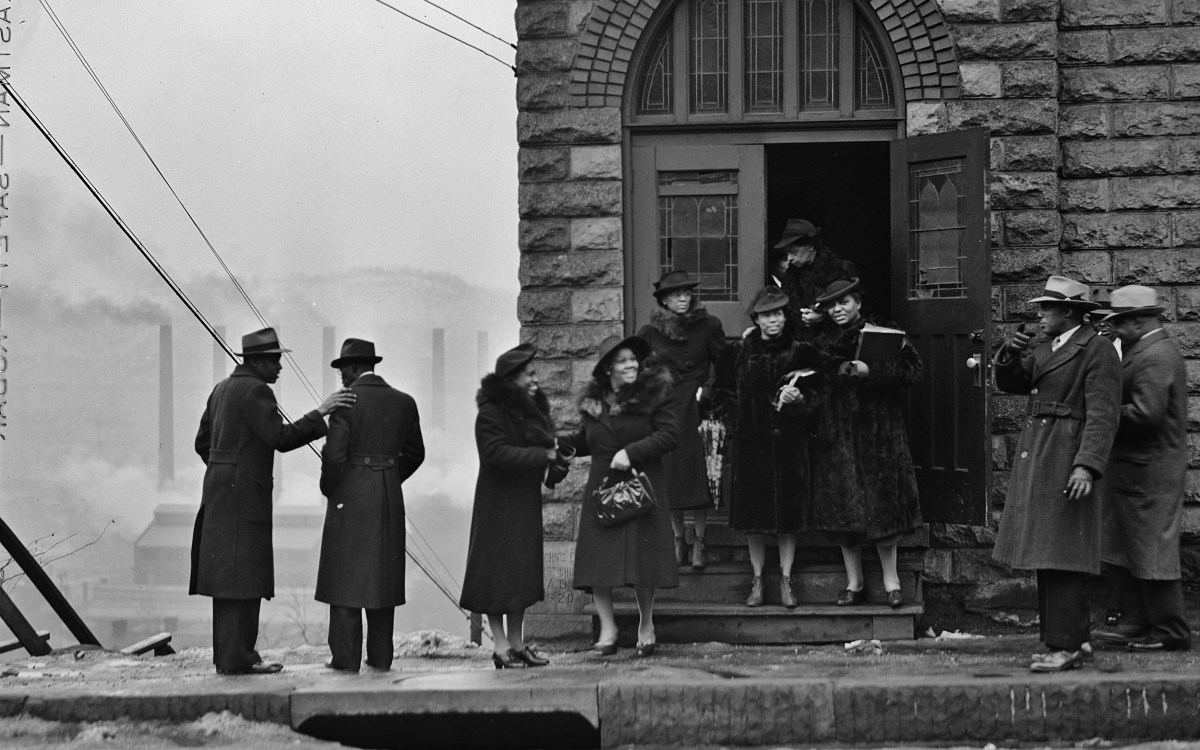
Jon Chase/Harvard Staff Photographer
How music powers protest
The struggle for racial justice has always had a soundtrack. New faculty Charrise Barron explores its evolution from gospel to hip-hop.
Returning to Harvard as a professor years after studying here is not uncommon. But Assistant Professor of Music Charrise Barron’s “full circle” moment may be a first: a computer science graduate returning as a gospel music expert.
Barron grew up playing piano in church on Sundays. But while music always had an important place in her life, it was CS50, a computer science course with a tough reputation, that sparked her first professional path. After a brief career in systems analysis, she pivoted to pursue a call to Christian ministry. It was then that she discovered ethnomusicology and returned to her original passion — music.
An ethnomusicologist, clergyperson, and scholar of African American religious and cultural history, she joined the Music Department as an assistant professor in 2022 and will begin teaching this fall after a year of research leave. It’s a true homecoming for the former Leverett House resident, as she also completed a master’s degree and her Ph.D. here.
“It feels amazing to be back,” Barron said. “Joining the music faculty and offering courses that explore African American music and the intersections of music and religion and culture — it’s really an exciting time.”
Barron sat down with the Gazette to discuss her research, fall and spring courses, and the advantages of conducting scholarly work as “an insider.” The interview has been edited for length and clarity.
Q&A
Charrise Barron
GAZETTE: Can you tell me about your fall course, “Black Protest Music,” and the courses you’ll be teaching this spring?
BARRON: This course is surveying Black protest music, and I’m broadly defining that term. I’m including music from the Negro spirituals, all the way up to the music of the Black Lives Matter movement. As we study Black protest music history, we’re able to get a glimpse of Black American history, which really is American history. I’m looking forward to hearing how students are processing the music that they’re hearing today and helping them relate the music to this long history of struggle for racial equality and social justice.
In the spring I’m teaching “Gospel Music from the Church to the Streets.” We’ll look again at Black sacred music, from the spirituals all the way up to the music of Kanye West’s Sunday Service Choir and the Maverick City Music choir. You can view this course as an introduction to Black American church history, because you can’t tell the story of gospel music without also telling the story of African American Christianity. The graduate course that I’m teaching is called “Gods of Hip Hop and Black Pop.” In this course, we’ll study the work of big celebrities in Black popular music and hip-hop, such as Beyoncé, Jay-Z, Kanye West, and more. We’ll be looking at how they use religion and religious iconography in their lyrics, performances, and personas.
“As we study Black protest music history, we’re able to get a glimpse of Black American history, which really is American history.”
GAZETTE: Could you talk about your current book project, which was the focus of your research leave?
BARRON: My current book project is called “The Platinum Age of Gospel.” That’s 1993 to 2013. I’m naming that era the “Platinum Age” because it shows succession from the “Golden Age” of gospel, which was 1945 to 1965. It speaks to an incredible amount of commercial success that a number of gospel artists were experiencing in a relatively short period of time; there were a great number of platinum-selling gospel albums in the platinum age. I make the case that something different is happening in that era from previous eras of gospel music, even though we tend to see a kind of cyclical process in which gospel music is cutting-edge, churches reject the music, eventually churches accept the music, and the cycle happens over again.
GAZETTE: What interests you about this current moment in gospel music?
BARRON: I’m interested in how the decadeslong push in the gospel music industry toward crossover success (crossover into Black popular music like hip-hop and R&B, but also into white Christian markets) has affected the music and allowed for artists like Kanye West and the Maverick City Music choir to dominate gospel and Christian charts today.
I’m interested in studying the relationship between gospel and the Black Lives Matter movement and how gospel is or is not functioning in the same way that we saw Black church music functioning during the Civil Rights Movement.
GAZETTE: How is that relationship similar?
BARRON: We’re seeing a reintroduction of some of the music from the past. Clergy who are participating in the Black Lives Matter movement are bringing back the spirituals and some congregational music that was circulating during the Civil Rights Movement. We’re also seeing gospel music performed at funerals of victims of police brutality, for example the George Floyd funerals.
But it’s different in this era, because the Black Church is not centered in the Black Lives Matter movement in the way that the Black Church was front and center during the Civil Rights Movement of the mid-20th century.
GAZETTE: How does being a member of the clergy intersect with the research work you do?
BARRON: For me, being a clergyperson and a musician who performs music in churches helps me to understand and engage with some of my research topics as an insider. I want my work to build a bridge, so that the people in churches and other musical communities can pick up an academic book and actually feel as if their stories are being told in a way that’s honest and accurate and from a place of care, even amid critique.






